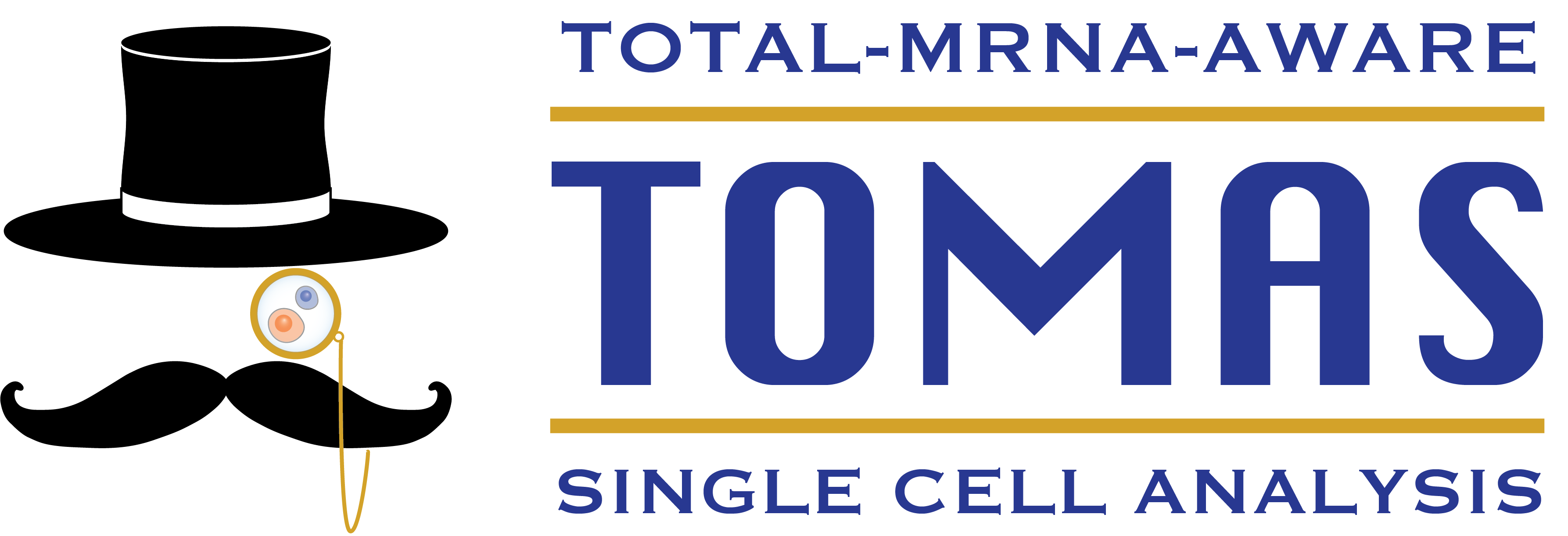

TOMAS: Total-mRNA-aware single cell analysis
TOMAS is a Python package for TOtal-MRNA-Aware Single-cell analysis for droplet-based single cell sequencing. It provides a computational soluation for controlling global abundance differences in droplet-based scRNA-seq where no experimental soluations are available yet.
TOMAS is compatible with scanpy and is easy to use.
Key applications
infer total-mRNA ratios between cell populations
perform total-mRNA-aware sinlge-cell analyses including differential expression (DE) analysis and functional enrichment analysis
visualize and compare the results with or without considering the total-mRNA differences
correct the distortion of scRNA-seq data induced by mRNA recovery rate decay
identify potential marker genes which are expressed at moderate level and thus more sensitive to total mRNA differences
Getting started with TOMAS
To utilize TOMAS in your single-cell studies, kindly install the package following the Installation tutorial. Once installed, you can refer to the tutorials for guidance on how to use it. You could get the key idea of TOMAS with a basic usage scenario illustrated in TOMAS Basics. Depending on how you prepared your single-cell library, you could select the appropriate tutorial to follow. If you prepared your scRNA-seq library without any experimental sample multiplexing techniques (Cell-hashing, MULTI-seq, etc.), please refer to the tutorial Generic case. If you adopted sample multiplexing methods during lib preparation, please follow the tutorial Sample_Multiplexing (still under construction). Exmaple datasets used in tutorials could be downloaded here.
After recovering the accurate total mRNA ratios between cell types, please refer to the tutorial Total-mRNA-aware analyses for downstream analyses that consider the total mRNA differences during comparative analysis.
Support
Your feedback will be greatly welcome! Feel free to submit an issue or send us an email if you encounter a bug when running TOMAS or if you have any suggestions about potential features TOMAS could involve. We really appreicaite your help to improve TOMAS.
Cite us
If you find it useful, please cite our preprint.